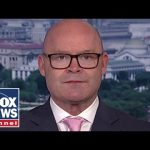Former President Donald Trump has ignited a firestorm of controversy with his sharp criticism of Ukrainian President Volodymyr Zelenskyy, labeling him a “dictator without elections” and accusing him of mismanaging U.S. financial aid while prolonging an unwinnable war. Trump’s remarks, delivered via his Truth Social platform and in public appearances, reflect a dramatic shift in U.S. foreign policy under his administration, which has prioritized negotiations with Russia over continued support for Kyiv. This pivot has alarmed European allies and drawn fierce backlash from Zelenskyy, who accused Trump of parroting Russian disinformation.
Trump’s critique zeroes in on Ukraine’s lack of elections during martial law and alleges that Zelenskyy is leveraging the conflict to maintain power and secure ongoing financial aid from the West. He pointed out that U.S. aid to Ukraine has far surpassed European contributions, asserting that the United States is shouldering an unfair burden in a war he claims is more critical to Europe’s security than America’s. Trump also questioned the transparency of Ukraine’s use of U.S. funds, alleging widespread mismanagement and corruption—a concern that resonates with conservatives skeptical of unchecked foreign aid.
From a conservative perspective, Trump’s stance underscores a broader frustration with the Biden administration’s foreign policy legacy, which many view as overly deferential to globalist priorities at the expense of American taxpayers. The billions in aid sent to Ukraine without clear oversight or measurable results have fueled growing skepticism among conservatives about the efficacy of such investments. Trump’s call for accountability and a reassessment of U.S. involvement aligns with the “America First” philosophy that prioritizes domestic interests over entangling foreign conflicts.
Zelenskyy’s response to Trump’s criticism has been equally pointed, accusing him of undermining Ukraine’s sovereignty by excluding Kyiv from recent U.S.-Russia negotiations and suggesting that Trump’s rhetoric emboldens Moscow. While Zelenskyy enjoys relatively strong approval ratings at home—contrary to Trump’s claim of minimal support—his decision to postpone elections under martial law has sparked debate about democratic norms during wartime. Critics argue that holding elections amid an existential conflict is impractical and could weaken Ukraine’s ability to resist Russian aggression, but others see it as a necessary step for maintaining political legitimacy.
The escalating feud between Trump and Zelenskyy highlights the complex dynamics at play in resolving the Russia-Ukraine conflict. While both leaders ostensibly share the goal of achieving peace, their approaches could not be more different. Trump’s overtures to Russia and emphasis on rapid negotiations reflect his transactional style, but they risk alienating key allies and undermining Ukraine’s position in any potential settlement. For conservatives, this moment presents an opportunity to reevaluate U.S. foreign policy priorities, emphasizing accountability, strategic realism, and a focus on advancing American interests while supporting global stability.




